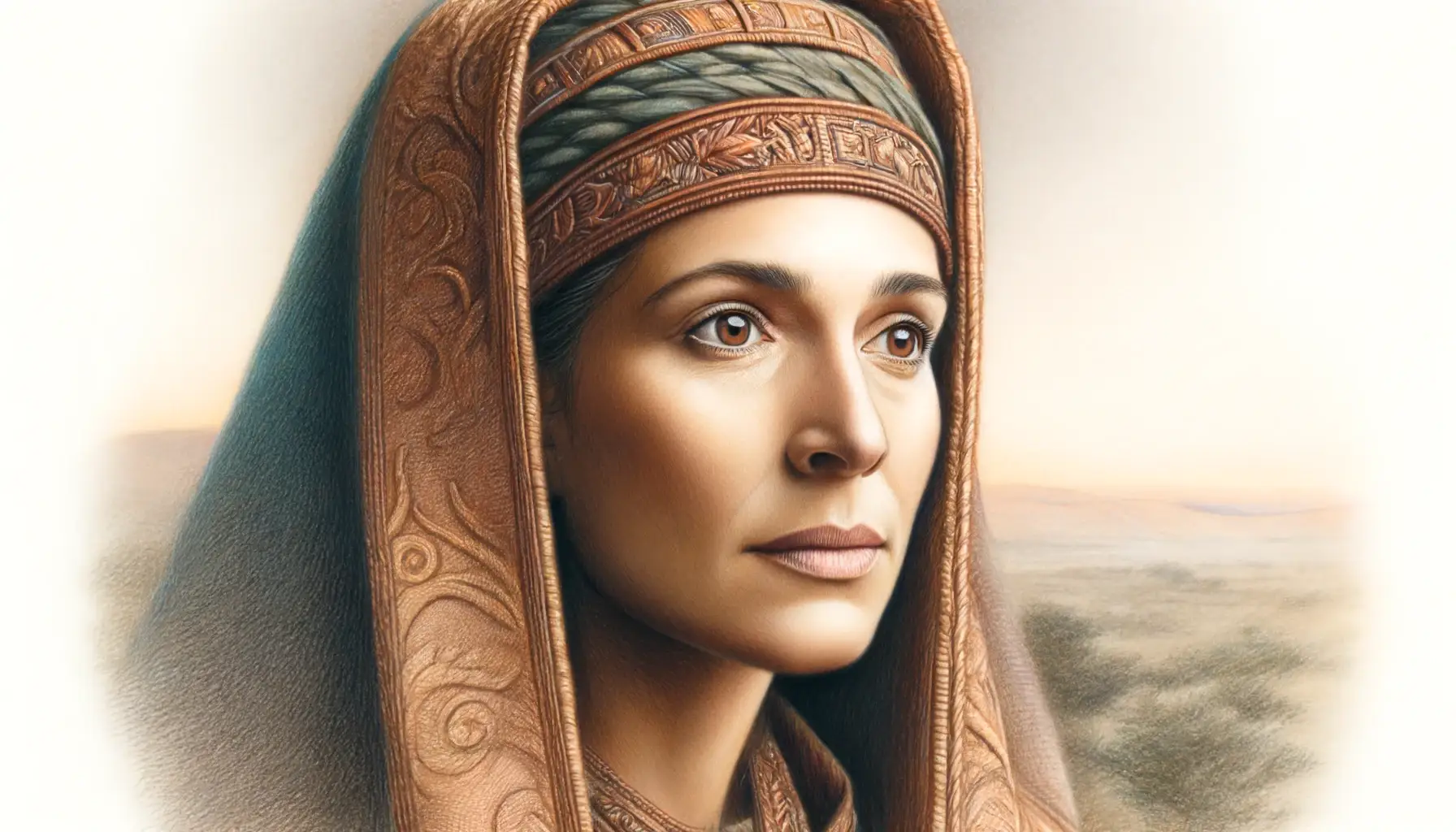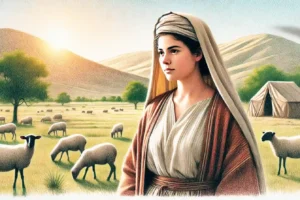
Deborah: Prophetess and Judge who led Israel to Military Victory
Deborah stands out in the Bible as a significant figure, primarily found in the Book of Judges, chapters 4 and 5. Here are some concise facts about her:
- Role and Titles: Deborah was a prophetess and a judge of Israel, one of the only female judges mentioned in the Bible.
- Historical Context: She lived and led during a period of Canaanite oppression under King Jabin, whose commander was Sisera.
- Judicial Duties: Deborah held court under the Palm Tree of Deborah between Ramah and Bethel in the hill country of Ephraim, where the Israelites came to her for judgment.
- Prophetic Leadership: As a prophetess, Deborah was a conduit for divine wisdom and guidance, delivering God’s commands and prophecies to the people.
- Military Leadership: She is credited with initiating and leading a successful revolt against the Canaanite oppressors. She summoned Barak to lead the army, though she prophesied the ultimate glory of victory would belong to a woman.
- The Song of Deborah: After the victory, Deborah and Barak sang what is known as “The Song of Deborah,” one of the oldest poetic passages in the Bible, celebrating the triumph and calling out the tribes of Israel that participated or did not in the battle.
- Legacy: Deborah’s story is celebrated for her leadership, wisdom, and faith, marking her as a powerful and inspirational figure in biblical history.
Deborah, a figure of great significance in the Old Testament, is both celebrated and examined for her multifaceted roles as a prophetess, judge, and military leader. Her story is primarily chronicled in Judges chapters 4 and 5, providing a rich tapestry of leadership and faith in a time of national turmoil.
Contextual Background
During the period of the judges, Israel was in a cycle of apostasy, oppression, supplication, and salvation, commonly referred to as the “Judges Cycle.” This cycle describes the Israelites turning away from God, facing oppression by foreign rulers as a consequence, crying out to God for deliverance, and God raising a judge to save them. Deborah emerged as a leader during the oppression by King Jabin of Canaan, who harshly ruled over Israel for twenty years.
Deborah’s Leadership Roles
1. Prophetic Role:
As a prophetess, Deborah’s role was to act as an intermediary between God and the people of Israel. Her prophetic insights were instrumental in guiding Israel at a time when divine communication was crucial for the nation’s survival and moral direction. Her prophecies provided both forewarning and guidance, and were pivotal in mobilizing Israel against their oppressors.
2. Judicial Role:
Deborah also served as a judge, presiding over disputes and providing legal and spiritual governance. She held court under the Palm Tree of Deborah in the hill country of Ephraim. Her position as a judge in such a patriarchal society underscores her exceptional character and wisdom, earning her a place of high respect in Israelite society.
3. Military Leadership:
Uniquely, Deborah also assumed the role of a military leader. When she received a divine command to confront the Canaanite army, she summoned Barak and instructed him to gather troops. Notably, she prophesied that the honor of victory would not go to Barak but to a woman, which foreshadowed Jael’s pivotal role in the defeat of Sisera, the Canaanite commander.
The Song of Deborah
The victory over the Canaanites led to the composition of “The Song of Deborah,” found in Judges 5. This song is one of the oldest extant examples of Hebrew poetry and is crucial for several reasons:
- Historical Insight: It offers details about the battle and the socio-political landscape of the time.
- Theological Content: It emphasizes God’s sovereignty and intervention in human affairs.
- Cultural Reflection: The song reflects the ancient Near Eastern practice of celebrating military victory with song and poetry, serving as a non-monarchical model of leadership that centered on God’s rule.
Theological and Cultural Significance
Deborah’s story is emblematic of divine empowerment and leadership. In a broader theological context, her narrative demonstrates that God can choose any vessel, regardless of gender or societal status, to fulfill divine purposes. Her leadership style is participatory and inclusive, contrasting with the more autocratic and male-dominated forms of leadership seen in her Near Eastern contemporaries.
Conclusion
Deborah’s role in biblical history is not just a testament to her own strength and wisdom but also highlights the themes of faith, obedience, and God’s providential care for Israel. Her story encourages reflection on the nature of God’s governance, the role of women in society, and the dynamics of faith and leadership. Her legacy as a judge, prophetess, and leader remains a powerful narrative in Christian theology and offers profound insights into the divine capability to use all willing individuals to achieve His purposes.



